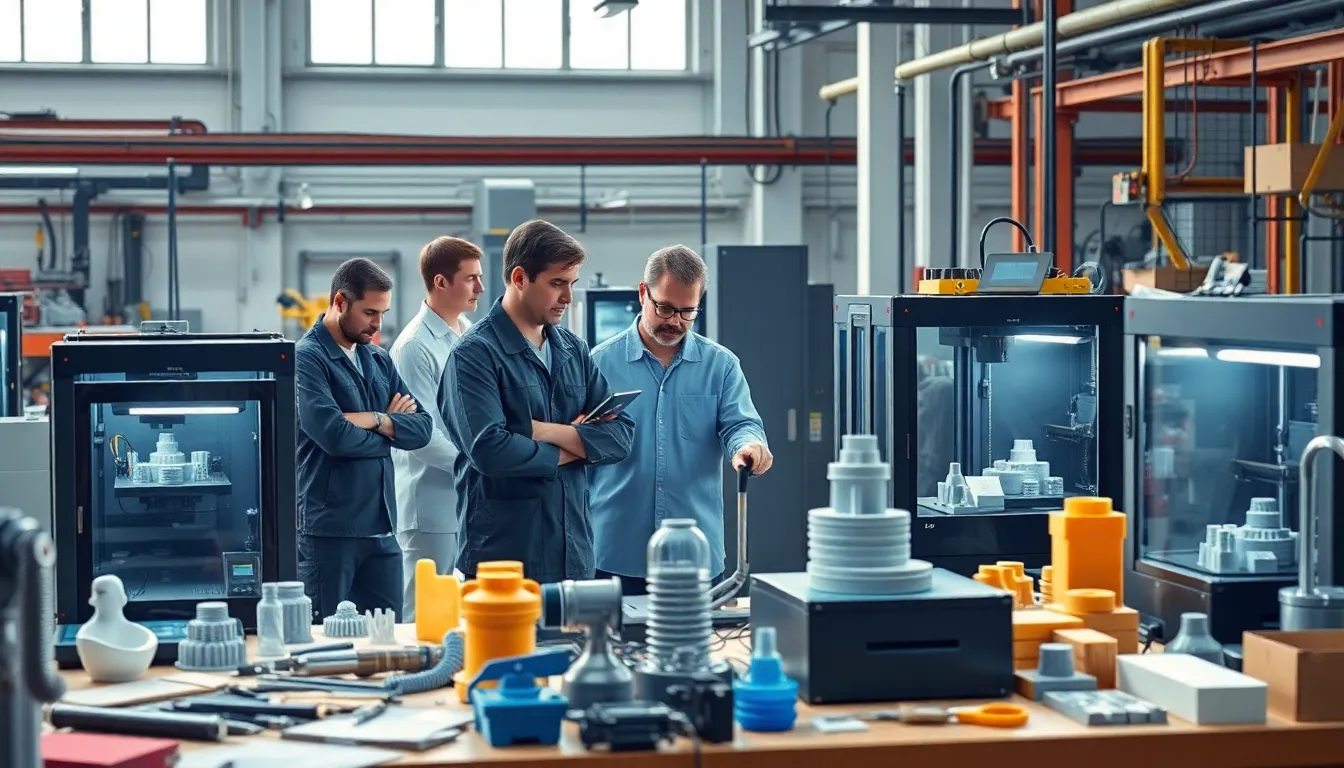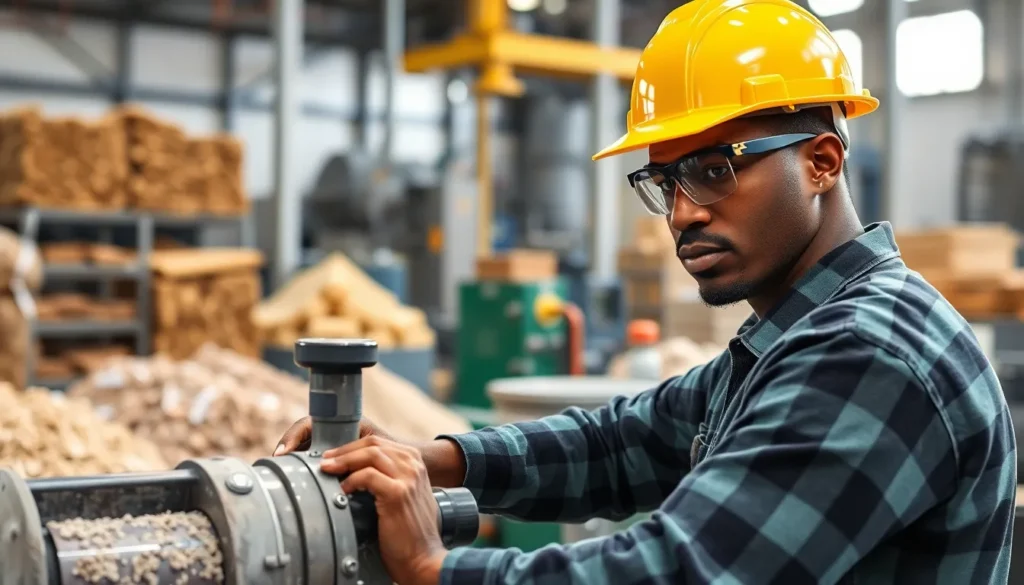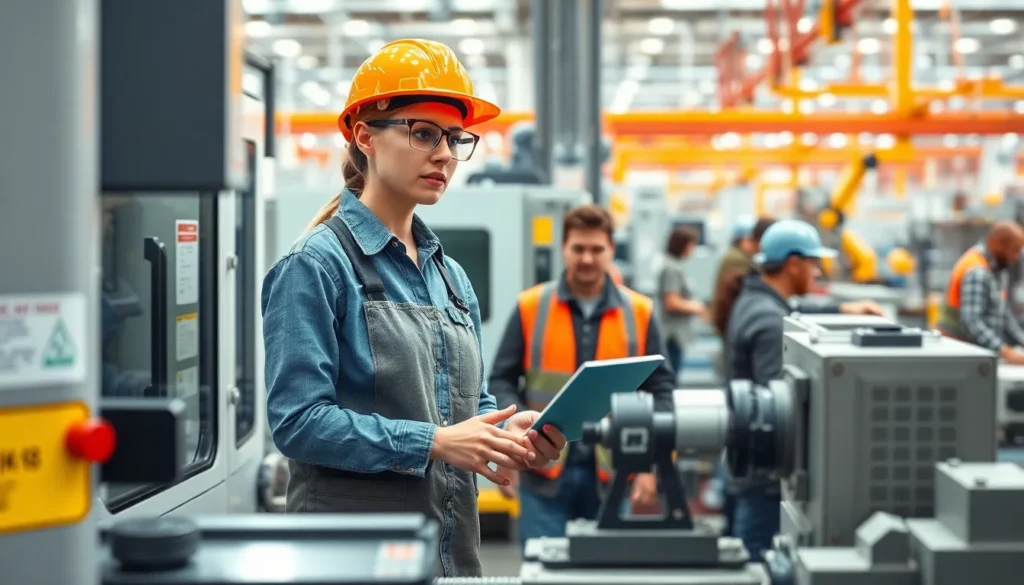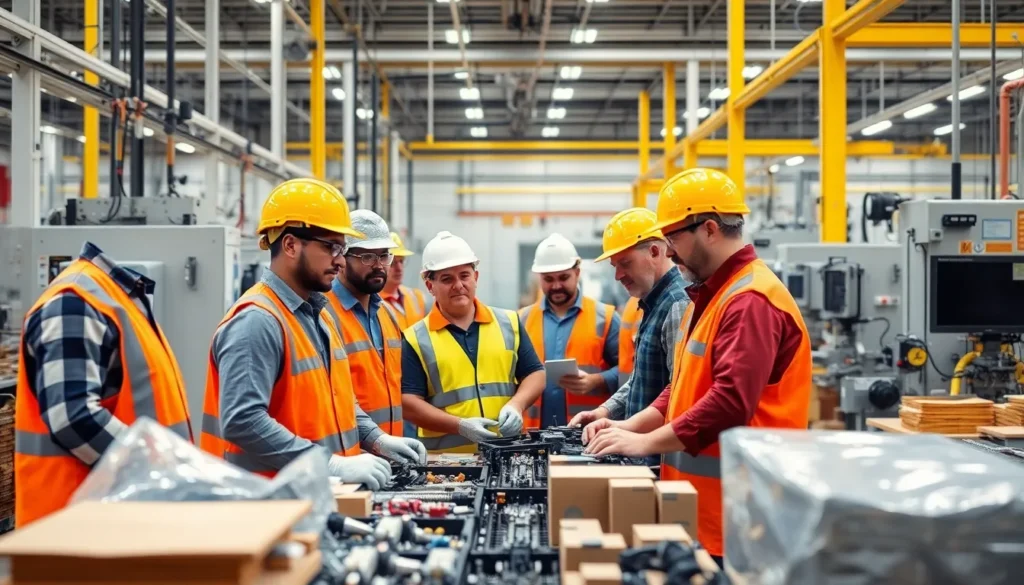In a world where raw materials are transformed into the products we rely on every day, industrial processing stands as the unsung hero. Picture this: without it, you’d be sipping your morning coffee from a leaf, and your smartphone would be a collection of rocks. It’s time to appreciate the magic behind the curtain that turns chaos into order and raw into refined.
Industrial Processing
Industrial processing plays a vital role in converting raw materials into finished products essential for daily life. This intricate chain enables the creation of goods from food items to electronic devices.
Definition and Importance
Industrial processing refers to the series of operations that transform raw materials into valuable products. Manufacturing and refining processes eliminate impurities, enhance quality, and increase usability. This transformation benefits various sectors including automotive, consumer goods, and food industries. Understanding the significance of industrial processing highlights its influence on economic growth and consumer satisfaction.
Key Processes Involved
Several key processes define industrial processing, including milling, extrusion, and fermentation. Milling breaks down raw grains into flour, while extrusion shapes materials, often used in food production. Fermentation occurs in food and beverage sectors, converting sugars into alcohol or acids. Each process contributes uniquely to the overall production cycle. Industries employ these methods to enhance product quality and efficiency.
Types of Industrial Processing

Industrial processing encompasses various methods for transforming raw materials, each tailored to specific industries and product requirements. Key types include additive manufacturing, subtractive manufacturing, and chemical processing.
Additive Manufacturing
Additive manufacturing refers to techniques that create objects layer by layer from digital models. This process includes methods like 3D printing, where plastics, metals, and ceramics are built up to form complex shapes. Industries use additive manufacturing for rapid prototyping, allowing for quicker product development and reduced waste. Various applications exist, including automotive parts, medical devices, and consumer products. The ability to customize designs makes additive manufacturing a significant innovation in industrial processing.
Subtractive Manufacturing
Subtractive manufacturing involves removing material from a solid block to achieve desired shapes. Techniques such as milling, turning, and drilling fall under this category. This method produces high-precision components used in aerospace, automotive, and machinery sectors. Machining tools often operate on metals, plastics, and composites, emphasizing efficiency and accuracy. The subtractive approach can create intricate details that meet stringent specifications while maintaining material integrity.
Chemical Processing
Chemical processing converts raw materials into different chemical products through various reactions. This method plays a vital role in industries such as pharmaceuticals, petrochemicals, and food processing. Techniques like fermentation, distillation, and chemical synthesis form the foundation of this type of processing. Chemical reactions transform materials at the molecular level, resulting in essential products like fuels, medicines, and additives. The significance of chemical processing in industrial manufacturing cannot be overstated, as it supports countless sectors and contributes to economic development.
Advances in Industrial Processing
Advances in industrial processing highlight significant innovations that enhance productivity, efficiency, and sustainability. Emphasis on these advances illustrates their transformative impact on various manufacturing sectors.
Automation and AI
Automation and artificial intelligence are revolutionizing industrial processing. Many manufacturers leverage robotics to streamline assembly lines, which boosts efficiency and reduces labor costs. Real-time data analytics, powered by AI algorithms, optimizes production schedules and minimizes downtime. Additionally, machine learning enhances predictive maintenance, allowing operators to address issues before they disrupt output. Companies that adopt these technologies often experience improved product quality and consistency. Increased automation levels create safer work environments by reducing human error and minimizing exposure to hazardous conditions.
Sustainability Practices
Sustainability practices shape the future of industrial processing. Enhanced techniques prioritize resource conservation and waste reduction. For instance, energy-efficient machinery decreases overall energy consumption during production. Companies increasingly utilize renewable energy sources, such as solar and wind, to power their operations, further reducing their carbon footprint. Waste minimization strategies include recycling raw materials, which lowers costs and conserves natural resources. Many industries are adopting circular economy principles to extend product life cycles, reduce environmental impact, and promote sustainable growth. Implementing these practices significantly contributes to economic viability while addressing urgent environmental challenges.
Challenges in Industrial Processing
Industrial processing faces several challenges that impact efficiency and sustainability. Understanding these challenges is critical for optimizing production.
Environmental Concerns
Industrial processing contributes to significant environmental issues. Air emissions and water pollution frequently result from certain manufacturing processes. Regulations often require companies to adopt greener technologies. Exploring eco-friendly alternatives minimizes waste and reduces carbon footprints. Many industries prioritize resource conservation and implement recycling initiatives to address these challenges. Adopting renewable energy sources also plays a vital role in sustainable practices.
Supply Chain Issues
Supply chain disruptions create substantial obstacles for industrial processing. Fluctuations in raw material availability can hinder production schedules. Geopolitical events and natural disasters often exacerbate these issues, leading to delays. Companies need to develop robust strategies for sourcing materials from diverse suppliers. Building strong relationships with vendors helps ensure reliability. Implementing advanced logistics solutions enhances supply chain resilience against uncertainties.
Conclusion
Industrial processing is a cornerstone of modern manufacturing that often goes unnoticed. Its ability to transform raw materials into essential products not only enhances daily life but also drives economic growth. As industries adopt innovative technologies and sustainable practices, the future of industrial processing looks promising.
The integration of automation and AI is set to revolutionize production efficiency while addressing environmental challenges. Companies that embrace these advancements will not only improve their operational capabilities but also contribute to a more sustainable future. Recognizing the significance of industrial processing fosters appreciation for the complex systems that support our everyday conveniences.



